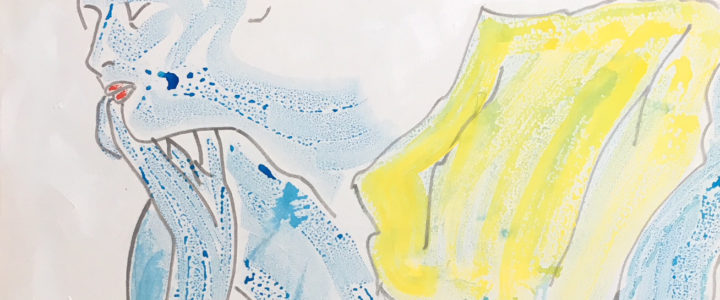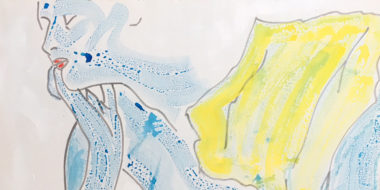1. Using This Booklet
“This booklet does not offer a plan for recovery from alcoholism” (Living Sober, Intro)
There is no chronology in addiction.
It is always where it is. Love too
can be like that; young love, especially.
This booklet is not a plan, it is more
like a body with bruises; the poems
connect the contusions in an attempt
to remember what was erased by force.
This booklet is full of accidents
with pages like carrier pigeons –
in hopes to reach out to the dead,
to coerce the grave to grow roots.
Fending Off Loneliness
“When we have only ourselves to talk to, the conversation gets kind of circular” (Living Sober, Section 14)
There’s always
a cliché to cling to.
Hair of dog and keep scratching.
Tie one on and get loose.
Off the wagon and hit your head.
I put a record on the player;
the grooves deepen.
I crack one open.
The singing comes first –
that I understand.
The reading aloud
is reasonable enough.
But this talking to walls?
I don’t know when it happened,
but it’s happened.
Each night my feet paces the distance
from Binghamton to Syracuse.
The floor’s wood is testimony
of this delirium, of this trek, of my tongue
moving like a train full of philosophers.
I’ve answered questions put forth by phantoms,
reminisced at length about my childhood to the face in the window,
drank until I became incoherent.
I’ve sat on the rocking chair to make it nod,
strained my voice at the curtains to make them clap.
Each night is a compulsion for company,
an argument to be put to sleep.
Lauren Sartor has an MFA from Sarah Lawrence College. Her work has appeared in publications, such as Black Fox Literary Review, Broad! Magazine, Calyx Journal, Literary Juice, Easy Street, The Former People’s Journal and others. Her work takes an earnest look at the conflicted, and often misrepresented, facets of ordinary livelihood. She is currently a Ph.D. candidate at SUNY Binghamton.










































